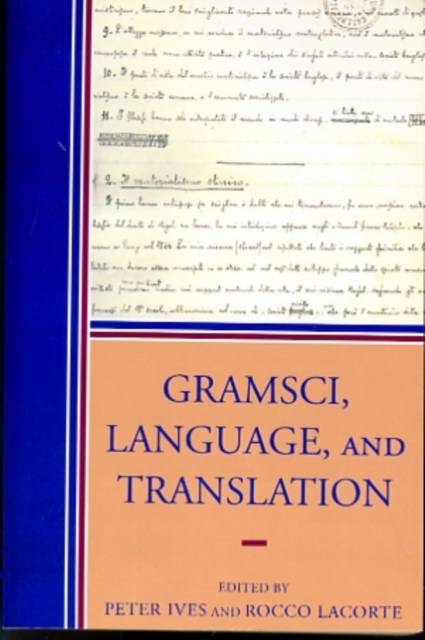
- Retrait gratuit dans votre magasin Club
- 7.000.000 titres dans notre catalogue
- Payer en toute sécurité
- Toujours un magasin près de chez vous
- Retrait gratuit dans votre magasin Club
- 7.000.0000 titres dans notre catalogue
- Payer en toute sécurité
- Toujours un magasin près de chez vous
Gramsci, Language, and Translation
90,45 €
+ 180 points
Description
This book provides the first English translations of pivotal essays and debates on the role of language politics, linguistics, and translation in Antonio Gramsci's influential cultural theory. It also includes new works from leading and up-and-coming anglophone scholars to create a vital resource for a wide variety of readers interested in Gramsci across many disciplines including cultural studies, critical political economy, social and political theory, literature, sociology, post-colonialism, and philosophy.
Spécifications
Parties prenantes
- Editeur:
Contenu
- Nombre de pages :
- 338
- Langue:
- Anglais
- Collection :
Caractéristiques
- EAN:
- 9780739118603
- Date de parution :
- 25-05-10
- Format:
- Livre broché
- Format numérique:
- Trade paperback (VS)
- Dimensions :
- 152 mm x 226 mm
- Poids :
- 521 g

Les avis
Nous publions uniquement les avis qui respectent les conditions requises. Consultez nos conditions pour les avis.





